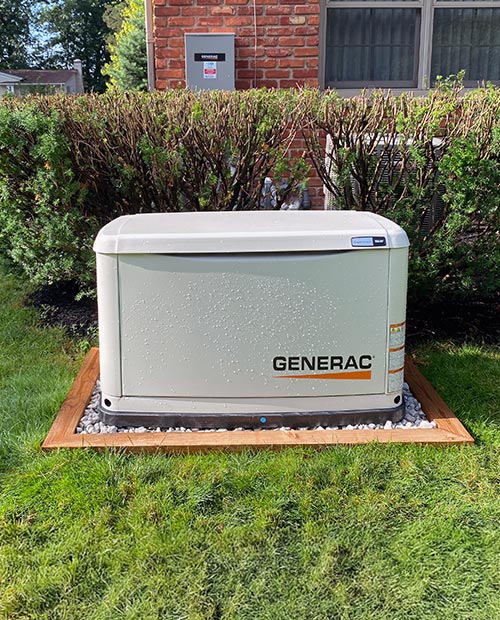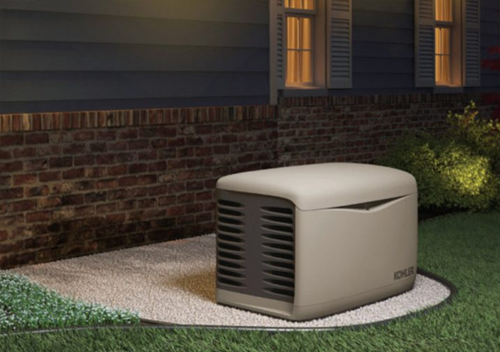
Generators are an invaluable asset for homes and businesses alike, providing backup power during outages and ensuring that your operations continue uninterrupted. However, just like any other appliance, generators can require repairs due to wear and tear over time. Understanding the average costs associated with generator repairs—and how to effectively budget for them—can save you from unexpected financial burdens. In this comprehensive blog, we will delve into the costs of generator repairs, the factors that can influence these costs, and tips on how to maintain your generator to minimize repair expenses.
The Average Cost of Generator Repairs
While the exact cost of generator repairs can vary greatly based on several factors, here are some average costs you can expect:
1. General Repair Costs
- Minor Repairs: For simple issues, such as replacing air filters or minor electrical components, you can expect to pay anywhere from $100 to $300.
- Moderate Repairs: For more extensive repair work, such as fixing the fuel system or addressing wiring issues, costs typically range from $300 to $800.
- Major Repairs: If your generator requires significant work, such as engine replacement or extensive electrical repairs, costs can soar to between $800 and $2,500 or more, depending on the severity of the problem and the unit’s specifications.
2. Seasonal Maintenance Costs
To keep your generator in peak condition, routine maintenance is essential, which can also have associated costs. On average, homeowners should budget about $150 to $300 annually for professional maintenance services. This often includes:
- Oil and filter changes
- Fuel system inspection
- Battery checks
- General inspection of components
3. Replacement Parts
If a component needs replacement, factor in the cost of parts in addition to labor. Here’s a breakdown of typical part replacement costs:
- Oil Filter: $10 – $30
- Air Filter: $15 – $50
- Batteries: $100 – $300
- Fuel Pump: $200 – $400
- Compressor (if applicable): $1,000 – $2,000
Keep in mind that (1) labor costs will be additional, and (2) prices can vary significantly based on brand, generator size, and location.
Factors Influencing Generator Repair Costs
Understanding the costs associated with generator repairs is only part of the equation; several factors can influence these costs:
1. Age and Condition of the Generator
Older generators may require more frequent repairs and maintenance, leading to higher overall costs. If your generator is nearing the end of its life cycle, investing in a new unit might be more cost-effective than ongoing repairs.
2. Type of Generator
The type of generator you own will significantly affect repair costs. Residential units tend to have lower repair costs compared to larger, commercial generators due to complexity and part availability. Additionally, certain brands may be more expensive to repair than others, depending on their reputation or rarity.
3. Location and Service Provider
Labor costs can vary depending on where you live and the availability of qualified service providers. Urban areas may have higher service charges compared to rural areas. Always compare quotes from multiple providers before committing to repairs.
4. Complexity of the Issue
More complex issues naturally come with higher costs. For example, electrical problems may require specialized skills, while mechanical issues may be more straightforward. Understanding the nature of the problem ahead of time can help you budget more accurately.
How to Effectively Budget for Generator Maintenance
Budgeting for generator repairs and maintenance doesn’t need to be a daunting task. Here are some actionable tips to help you plan effectively:
1. Create a Maintenance Schedule
Establishing a routine maintenance schedule based on your generator’s usage and manufacturer’s recommendations can help detect potential issues before they become costly repairs. Document each maintenance check to keep track of what has been done and when.
2. Set Aside a Repair Fund
Allocate a specific amount of money each month to a repair fund based on average costs. For instance, if you estimate yearly expenses at approximately $600, set aside $50 a month to cover repair costs as they arise.
3. Compare Repair Shop Rates
Not all repair shops charge the same rates, so it pays to shop around. Compare costs and read reviews online before choosing a service provider. Quality and reliability matter, but being cost-efficient is also crucial.
4. Keep an Eye Out for Signs of Damage
Regularly inspect your generator for any signs of damage or wear—such as unusual noises, leaks, or changes in performance. This proactive approach may help you catch problems earlier, reducing overall repair costs.
Conclusion: Be Prepared for Future Repairs
Understanding the average costs associated with generator repairs and how to plan ahead allows you to mitigate the financial impact when emergencies arise. By following a routine maintenance schedule, establishing a repair fund, and being proactive in monitoring your generator’s condition, you can ensure your power source stays reliable when you need it most.
Have you experienced unexpected generator repairs before? What tips did you find most useful? Share your experiences in the comments below, and don’t forget to pass this article along to someone who might benefit!
continue reading
Related Posts
In our increasingly power-dependent world, generators play a crucial role […]
Generators are essential for providing backup power during outages, but […]
Generators are invaluable assets, providing much-needed power during outages and […]



